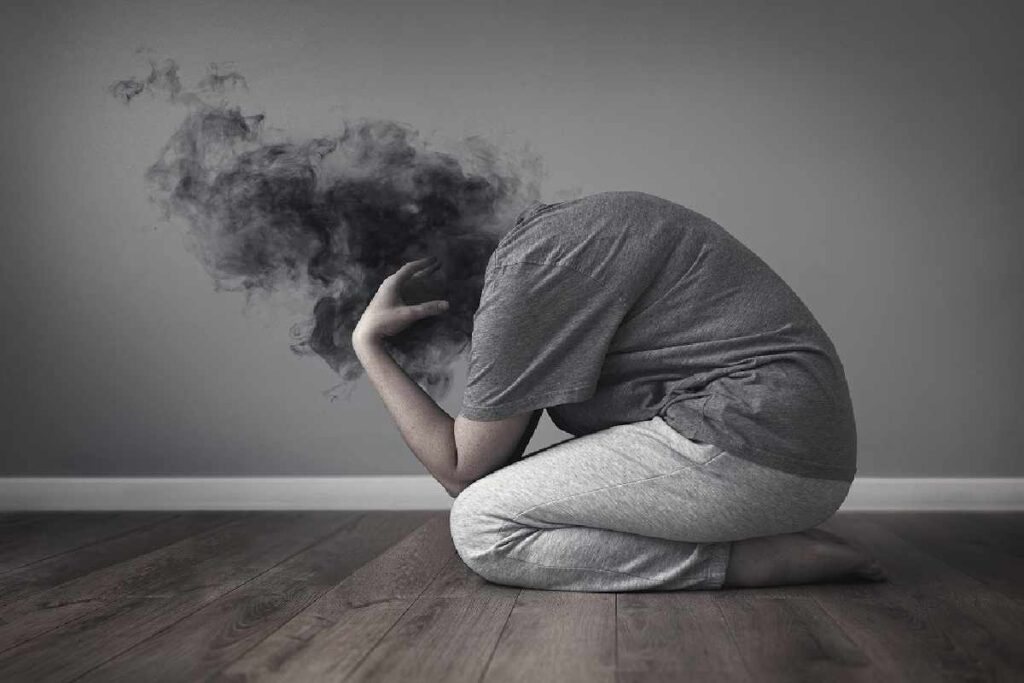Depression Is Genetic: Depression is an emotional disorder that, according to the WHO (World Health Organization), affects more than 300 million people worldwide. Spain is the fourth largest country in Europe with two million people affected.
What are the causes? Can it be transmitted from parents to children through genes, so is depression genetic? In this article, we answer these questions!
Table of Contents
What is Depression is Genetic?
Depression is a mental illness that causes a bad mood, listlessness, and sadness that typically affect the levels of activity, thinking, and behavior of people who suffer from it.
Sometimes it is accompanied by negative feelings such as guilt, irritability, pessimism, and decreased focus, appetite, and sex drive. In the most severe cases, thoughts of death or suicide can arise.
It is a pathology that does not affect both sexes equally. According to the WHO, 5.1% of people with depression are women, and 3.6% are men.
Causes Of Depression Is Genetic
Is depression a biological disorder, or do external factors cause it? Both concepts are valid. In endogenous depression, there is a physical cause that motivates it. In exogenous depression, some factors can cause it or ignite the fuse that causes the symptoms to develop.
Depression is generally produced by interacting with various biological factors that make the symptoms associated with this pathology.
Some Of These Factors Are: Depression Is Genetic
Biological Differences:
People with depression have specific physical changes in the brain; these differences have been studied and are not fully understood.
Brain chemistry:
Neurotransmitters such as serotonin, dopamine, or norepinephrine play an essential role in brain communication; changes in its function are related to depression and its treatment.
Hormones:
Hormones can play an important role in depression, especially in physiological conditions such as pregnancy, puerperium, menopause, thyroid problems, etc., where changes in hormone levels are essential.
Genetic Factors:
Depression is more common in people who have close relatives who have it.
Psychosocial and Personality Factors: Importantly, psychological defense mechanisms such as resilience can protect people from depression and other emotional disorders.
So, Is Depression Is Genetic?
In articles such as Diseases and Types of Genetic Inheritance, we have seen that many diseases are transmitted from parents to children by a specific mode of transmission.
But Is This The Case With The Current Condition? That Is, Can Depression Also Be Genetic?
The growth of depression depends on genetic and environmental factors. In particular, the heredity of this pathology is estimated at 40-50%. What does it mean? The concept of heredity refers to the percentage of the population with this condition, the causes of which are due to DNA variation between individuals, but this does not mean that children of a person with depression will present to them. A 40% chance. It’s not! Law! It implies that genetic inheritance explains 40% of the individual differences in the depiction of depression. It may sound very technical; the important thing is that there is a genetic factor, which means that these genetic variations can pass from parents to children, and the risk to first-degree parents is greater, but that does not mean that they have trouble.
Also Read: FOUR TRADITIONAL HAIR GROWTH INGREDIENTS YOU MUST TRY
Types Of Depression
Depression is not the same as depression because different classes depend on symptoms and development. In each of them, the weight of the factors that provoke it varies.
We Can Mainly Differentiate Between The Following Types Of Depression:
Major Depression:
This type of depression has a mostly genetic component, and although there is an environmental factor, it weighs much less. Major it may recur and, in some cases, appears to be seasonal.
Reactive Depression:
In this case, the reverse is usually true: the genetic contribution is there, but less, and the disease is generally caused by a poor adaptation to external stressful situations that the patient cannot do. Face satisfactorily.
Dysthymia:
With this type of depression, the picture is usually smoother than the previous two and is chronically developing. It usually grows slowly, but the presence of symptoms is constant. It appears to be link to personality and exposure to prolonged stress.
Masked Depression:
In this case, the patient does not have the typical symptoms of depression but somatizes the disease into physical changes (somatization) or behavioral changes.
Conclusion
If you or someone you love suffers from depression, you may be asking if it is curable. Unfortunately, there is no one-size-fits-all answer or response. Depression is an inherently complex disorder with no clear path to recovery. This mental disorder, on the other hand, an be treat.
A medical expert can prescribe a variety of drugs to help you cope with depression. Approaching a therapist or psychologist is the most effective technique to deal with depression. Everyone deserves to be happy; if you or someone you love is suffering from depression, seek professional treatment.

